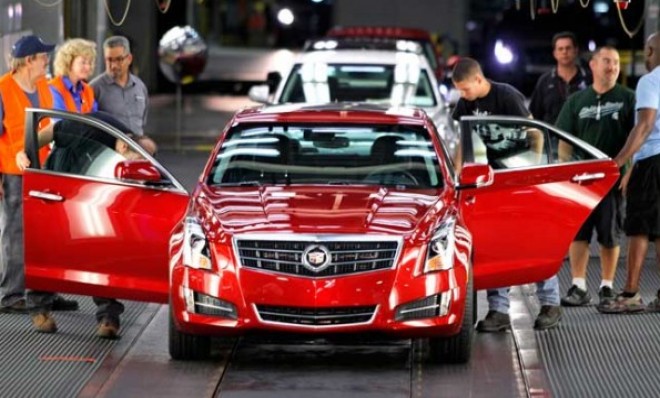The government's plan to get out of General Motors: Too soon?
A new plan to sell GM shares will likely cost taxpayers billions of dollars


Critics of the Obama administration won't have "Government Motors" to kick around anymore. The Treasury Department on Wednesday announced that it would sell its entire stake in General Motors within 15 months, bringing to close a controversial $50 billion bailout that saved more than 1 million jobs. GM will buy back 200 million shares for $5.5 billion, or $27.50 a share, an 8 percent premium on GM's closing share price on Tuesday. That will leave the Treasury with 300 million shares, equivalent to 19 percent of the company, which the government plans on selling in small batches.
The deal is part of a push by the government to wind down the billion-dollar bailouts that proliferated during the financial crisis. Last week, the Treasury sold its remaining shares in AIG, ending a bailout that had once ballooned to $180 billion. The Obama administration almost sounds relieved to be disentangling itself from the private sector. "The government should not be in the business of owning stakes in private companies for an indefinite period of time," said Treasury Assistant Secretary Timothy Massad.
But is the government's race for the exits coming too soon? Prior to the deal, for the taxpayer to break even on the bailout, the Treasury would have to sell its shares for around $52.50 — not $27.50. If the Obama administration were to dump its remaining 300 million shares for the same price, it would lose between $11 billion and $12 billion. Compare that with AIG, an unmitigated disaster of a company whose bailout somehow ended up resulting in a tidy $22.7 billion profit.
The Week
Escape your echo chamber. Get the facts behind the news, plus analysis from multiple perspectives.

Sign up for The Week's Free Newsletters
From our morning news briefing to a weekly Good News Newsletter, get the best of The Week delivered directly to your inbox.
From our morning news briefing to a weekly Good News Newsletter, get the best of The Week delivered directly to your inbox.
For one thing, "it's been evident for some time that GM shares weren't likely to double in price in the near term," says Joseph B. White at The Wall Street Journal, "given the company's woes in Europe and its difficulties gaining market share in the U.S." Furthermore, the government's involvement in GM has been widely seen as a major reason investors aren't buying the company's stock, meaning waiting patiently for a bump in share prices would only be a self-defeating exercise.
However, that doesn't mean the Treasury got the best deal it could get. "If the government has such confidence in GM's progress, why can't we get a higher price than $27.50?" says David Silver at Seeking Alpha. "I know it would be a very long time before our investment reached the $52 level threshold and we could break even, but still it seems like we are jumping the gun."
In addition, it's easy to forget — particularly in an era in which AIG can receive $180 billion in government support — that $12 billion is a lot of money. "GM will go down as one of the costliest bailouts in U.S. history," says Rick Newman at U.S. News & World Report. "The only companies who owe taxpayers more at this point are the wrecked housing agencies Fannie Mae and Freddie Mac."
Still, there is the comfort that the AIG profit balances out the GM loss. After so much experience in the markets, the Obama administration, like most investors, has probably adopted a Zen-like attitude toward its investments: You win some, you lose some.
A free daily email with the biggest news stories of the day – and the best features from TheWeek.com
Ryu Spaeth is deputy editor at TheWeek.com. Follow him on Twitter.
-
 Is the American era officially over?
Is the American era officially over?Talking Points Trump’s trade wars and Greenland push are alienating old allies
-
 Political cartoons for January 26
Political cartoons for January 26Cartoons Monday's political cartoons include an ICE storm, the TikTok takeover, and Iranian-style reform
-
 Winter storm lashes much of US South, East Coast
Winter storm lashes much of US South, East CoastSpeed Read The storm spread across 2,000 miles of the country